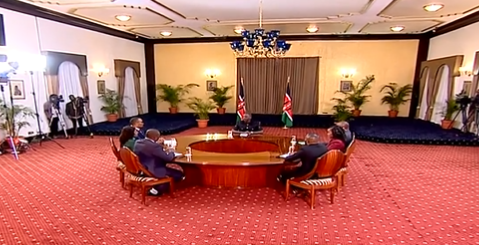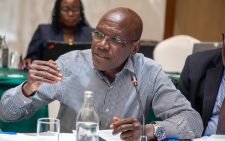Let’s cut journalists who interview VIPs a slack

During prime time on Sunday, President William Ruto hosted journalists at the State House to field questions from them.
Before the event, each media house promoted the interview prominently, featuring the star journalist from the media house who would conduct the interview. One would have been forgiven to think the interview was with individual media houses rather than all the invited media houses.
Presidents have a bully pulpit, which they can mount at any moment and address the nation. President Ruto used it well last Sunday, essentially cancelling the day’s news broadcast in Kiswahili.
Since then, there has been a lot of commentary on the event. Kenyan journalists tend to be the harshest critics of their colleagues. Why was this journalist and not another chosen for this assignment?
And the journalists chosen to feature in this interview, why did they ask this question and not another? Why did they explore only this theme? Did they easily let the president off the hook, or did the President corner them? And why were the journalists speaking over each other?
The critics have not been short of armchair suggestions. Some have suggested that the journalists should have come together to agree on what questions to ask so they do not appear to trip over each other. The suggestions are all fine, but the journalists who featured in the interview should be given enough credit. High-profile interviews can not be a preserve of just one set of journalists. Room must be made for the upcoming journalists to test their skills and have a chance to shine.
Not everyone covers a president; in any case, a president is intimidating, especially when he or she is in their comfort zone: State House. Any journalist will be unsettled, and seats of power are designed that way – to be intimidating.
Part of the challenge of a high-profile interview like the one on Sunday is the culture created in this country, where sources take forever to explain a simple issue instead of thinking through issues and answering questions by giving short answers. For example, in the average interview in Kenyan media, a source will take over five minutes to answer a question and explain a point.
This is particularly annoying in the morning shows. Sources, and particularly politicians, should learn the art that journalists learned in school. In the inverted pyramid, have your answer to any question distilled in a loaded intro so that you provide the journalists with a soundbite.
In nine seconds, during which you can comfortably say 27 words, a source should be able to cover three points. Consider this. A two-minute television news story is a luxury. Those two minutes will be shared, including the introduction, the reporter’s framing, the source’s soundbite and conclusion. But a story rarely gets two minutes.
News sources must learn to make their points in the shortest time possible, allowing journalists to ask more questions, cover a wider field, and better satisfy the public’s demand for more information.
The average public member is usually too impatient to listen to a three-minute monologue, regardless of who the speaker may be. It is not only the journalist who has to make the interview interesting, but the politician as well, to keep the public tuned to his or her ideas.
There is nothing wrong with journalists tripping over each other to ask a question. Each has an angle to pursue, and it is in their selfish interest to have that question pushed and answered so they have a hook to hang their story on. The secret to covering a large field is asking a short question and getting a short answer. A two-hour stretch is particularly demanding of your audience, for there is no magic in two hours.
Kenyan media should always be proud of its ability to raise promising, talented journalists who can hold power to account. Sunday was a good effort.
— The writer is Dean, School of Communication, Daystar University












